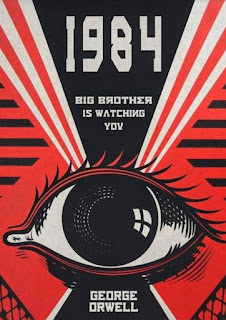The dawn of the informational age in the mid 20th century was brought on by the inception and adaption of electronic technology. The technology of the early informational age allowed for the modernization of information and communication. Once again the world has begun to see advancements in technology rapidly change the landscape of the world. Most recently the development of AI, or artificial intelligence, has taken the technological hotspots of the world by storm. When people think of AI many recall the movie villains of the 1980’s, robots who became too advanced for their creators and take over the world suppressing the human race. However, AI takes many different forms today. From the personal assistants in most cell phones today, to google filling in your most likely search as you type it, to cars that drive themselves, we encounter AI algorithms and programs all the time in our everyday lives, most of the time without even realizing it. But AI is still relatively new and there are still many questions. For the many benefits AI brings to our everyday lives could it also be harmful? Could AI put our nation at risk?
After Google demonstrated their advancements in AI and machine learning, China began to realize that AI would be a pivotal technology of the future and began widespread and intense development of AI technologies. These AI developments have lead to the implementation of a complete surveillance state; millions of cameras watching citizens 24/7, using facial recognition to identify people, and track where they go and what they do. In much of China, AI like facial recognition and other programs have been added to their social credit system. The social credit system can best be described as a system of databases that the Chinese government has full of information on each citizen. The Databases monitor and assess the trustworthiness of people, companies, and government entities. A good social credit score may earn you perks like priority health care and deposit free renting, while a bad score could see you lose access to transportation like trains and planes.
Chinas AI technology has come so far that the society has bypassed credit cards, and an individual can pay for groceries with their face. Another example of chinas AI innovation is a program that assesses an individuals risk for a loan from five thousand factors like what percentage you keep your phone on and how confidently you type your loan application. This entire process takes an average of eight seconds. China even has a program where facial recognition is used to identify J-walkers. Their photo is posted on a sign and they are publicly shamed, ridiculed, and instantly fined. China’s implementation of such advanced AI in their surveillance of citizens sparks concerns that are reminiscent of reading George Orwell’s dystopian novel 1984. A society with no privacy or civil liberties, citizens constantly being watched in an attempt to “better society”, strict punishment for minor offenses, and a way for those in power to remain there.
With China becoming one of the United States biggest adversaries in recent years, as well as becoming the largest competitor to Silicon Valley and American AI, National security is always a high priority. One example of how AI has already posed a threat to democracy in the US is the Cambridge Analytica scandal. It showed that the AI technology currently being used by Facebook to learn about and predict user behavior could be used to help manipulate the voting patterns of people without their knowledge. If the public’s thoughts and ideas are not there own, and they have been manipulated into voting in a certain way than our democracy has failed at a fundamental level.
In addition, AI technology has brought on yet another wave of automation, and as history will show, advancements in automation does lead to rising unemployment. For example the use of self driving trucks for shipping and the trucking industry will put thousands individuals out of a job. Dr. Kai Fu-Lee, a computer scientist and author of many books about AI stated in an interview that he believes as much as 50% of jobs will be threatened by AI technology. However, in the wake of large societal advancements and changes in markets, it is common that new industries and careers will take hold and offer new economic opportunities. This leaves many people in a difficult situation due to the fact that many of these new careers require training and education that many do not have or can afford.
Advancements in AI technologies have made our lives increasingly more easy, but does that mean they have actually improved our lives? Have we mistaken their luxuries as an improvement to our lives when in reality they are used as tools to strip us of our civil liberties, our privacy, our identities as individuals, and even our financial stability.





No comments:
Post a Comment